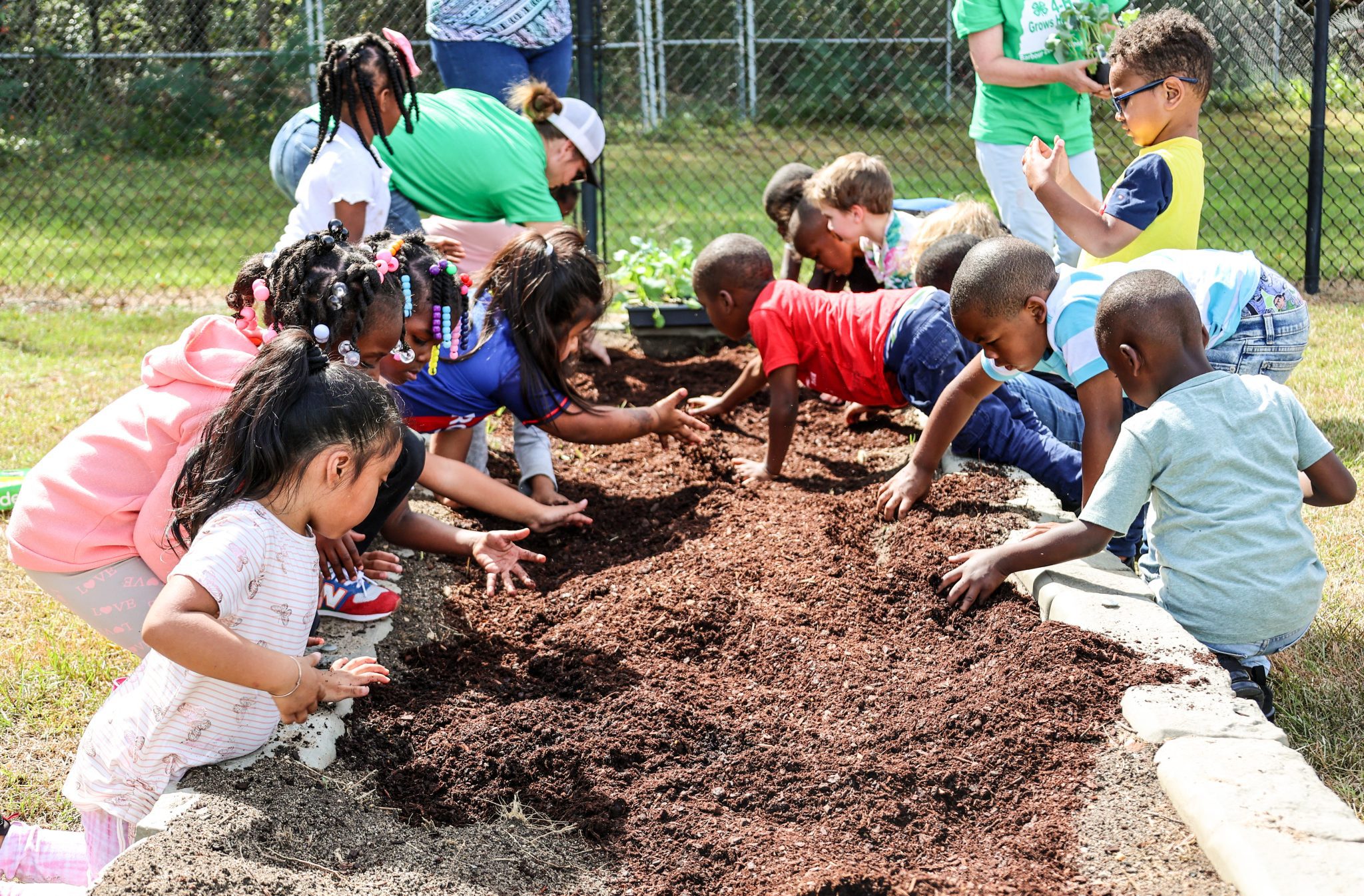Home & Family

Gardens enable people to grow their own food and have an active role in what’s being put on the dinner table. Whether in a community, school, or personal garden, there are multiple benefits to taking charge of your family’s meal plan. Research shows that people who participate in gardening tend to be more physically active, eat more fruits and vegetables, and experience lower rates of food insecurity.
Live Well Alabama and the Alabama Cooperative Extension System at Auburn University strive to partner with local garden efforts throughout the state. These partnerships includes community centers, early childhood centers, elementary and high schools, food assistance sites, healthcare systems, housing districts for limited-resource families and seniors, and summer camps. These partnerships work to establish new gardens, reinvigorate current gardens, and maintain existing garden efforts.
The produce grown in these gardens serves a wide range of individuals. At times, it goes directly to the individuals helping maintain the garden. Other times, volunteers are involved in helping donate to food assistance sites. Some school gardens allow children to take home produce grown, and if there is food leftover, it is donated to a local food bank or pantry.
By The Numbers
In 2023 (Fiscal Year), SNAP-Ed supported the establishment or sustainability of 38 school and community gardens, making fresh vegetables available to 10,640 Alabama residents.
Additionally, gardens supported by SNAP-Ed produced over 2,600 pounds of produce, valued at $5,435. This equated to 9,440 servings of fruits and vegetables, which are enough for 1,888 adults to meet the USDA daily recommendations.
More Information
For more information about Live Well Alabama, visit www.LiveWellAlabama.com. You can also visit Live Well Alabama on Facebook, Twitter, Pinterest, and Instagram.
Click here to view the USDA Nondiscrimination Statement.


